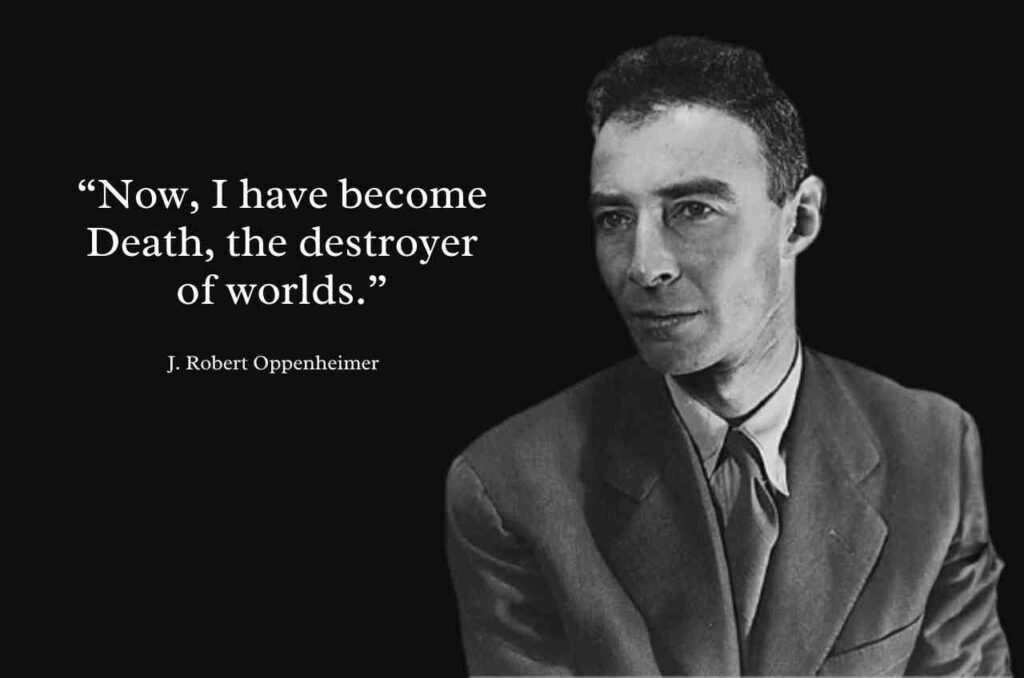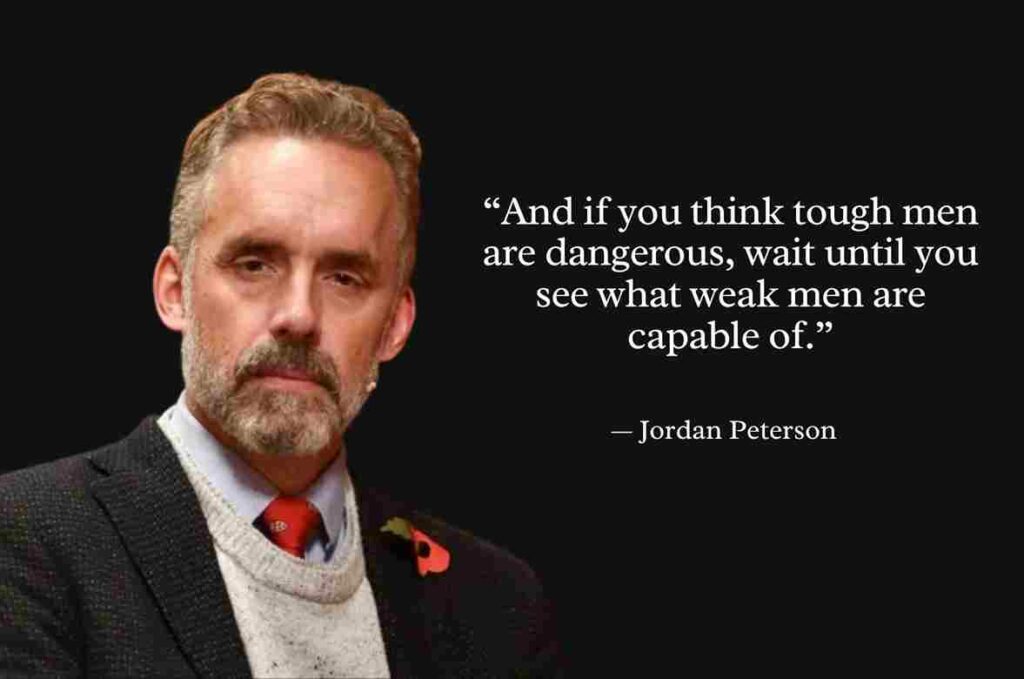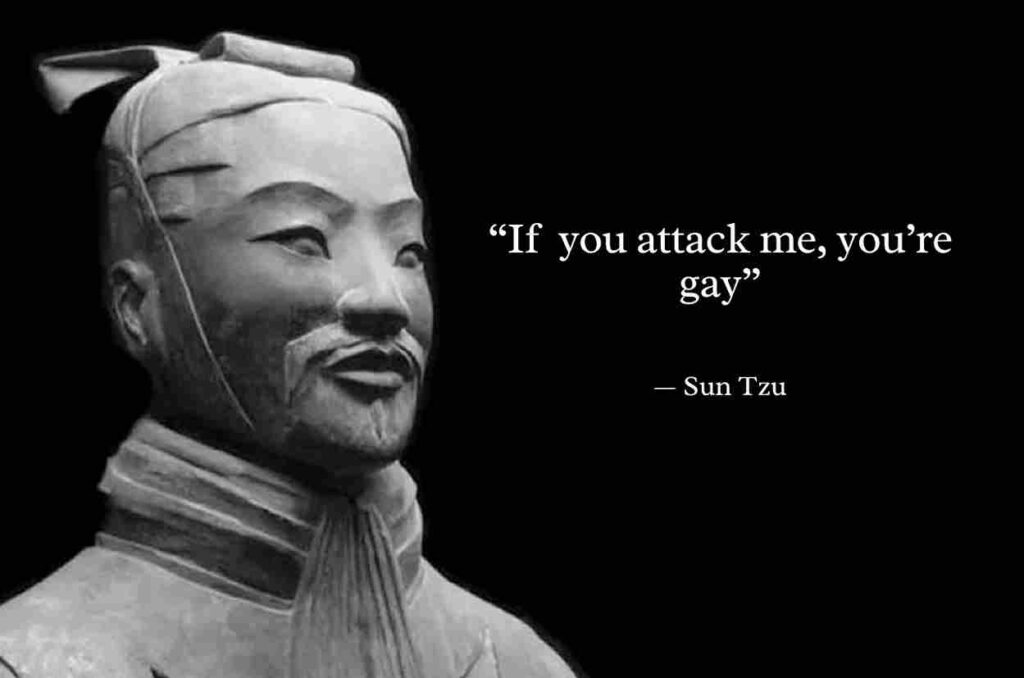In this post, we’ll venture into the world of J. Robert Oppenheimer quotes, who was an American theoretical physicist and scientific director of the Manhattan Project during World War II. He played a crucial role in the successful creation of the first atomic bombs, which were dropped on Hiroshima and Nagasaki in 1945, leading to the end of the war.
J. Robert Oppenheimer (1904–1967) was born on April 22, 1904, in New York City. He was renowned for his contributions to quantum mechanics and theoretical physics before his involvement in the Manhattan Project.
J. Robert Oppenheimer Quote from Bhagavad Gita
He developed a keen fascination for Bhagavad Gita and quoted the following quote from the Bhagavad Gita after the bombing of Hiroshima and Nagasaki.
“If the radiance of a thousand suns
Were to burst at once into the sky
That would be like the splendor of the Mighty One…
I am become Death,
The shatterer of worlds.”
This became one of J. Robert Oppenheimer’s most famous quotes considering the time and events it was uttered in.
In 2023, there was a film adaptation made on him named ‘Oppenheimer’ where it encapsulated his life story and his involvement in the creation of atomic bombs. The film was a commercial success.
Here are some of the most famous J. Robert Oppenheimer quotes.
Famous J. Robert Oppenheimer Quotes
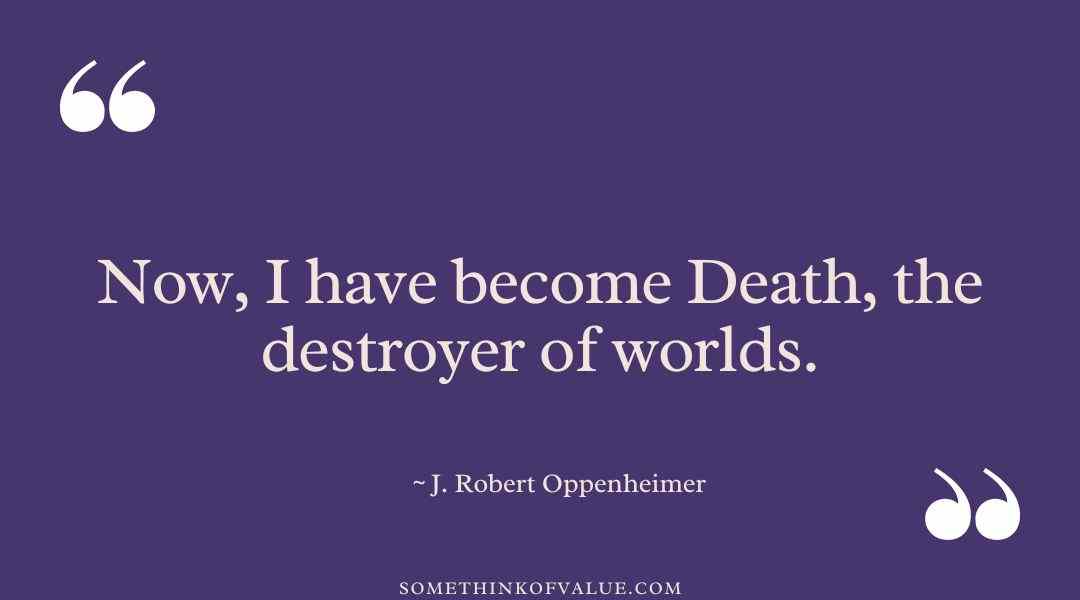
1. “Now, I have become Death, the destroyer of worlds.”
2. “It’s too soon to tell what the results of this bombing are but I’ll bet the Japanese didn’t like it.”
3. “If atomic bombs are to be added as new weapons to the arsenals of a warring world, or to the arsenals of nations preparing for war, then the time will come when mankind will curse the names of Los Alamos and of Hiroshima.”
4. “Mr. President, I feel I have blood on my hands.”
5. “My life as a child did not prepare me for the fact that the world is full of cruel and bitter things.”
6. “The world will remember this date.”
7. “I never accepted Communist dogma or theory.”
8. “They won’t fear it until they understand it. And they won’t understand it until they’ve used it.
9. “Access to the Vedas is the greatest privilege this century may claim over all previous centuries.”
J. Robert Oppenheimer Quotes About Atomic Bomb
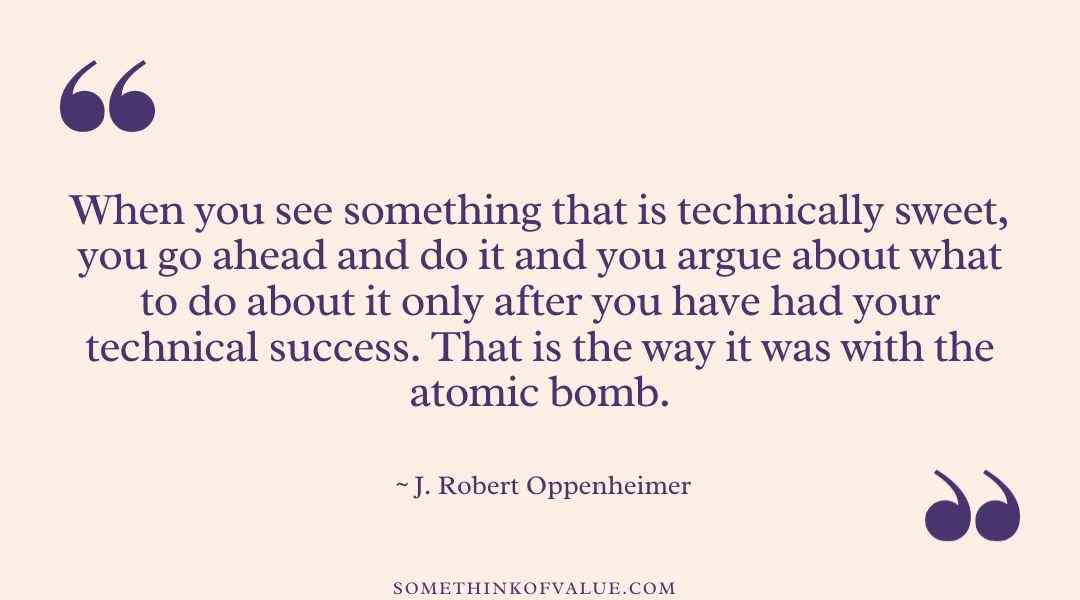
1. “When you see something that is technically sweet, you go ahead and do it and you argue about what to do about it only after you have had your technical success. That is the way it was with the atomic bomb.”
2. “The atomic bomb made the prospect of future war unendurable. It has led us up those last few steps to the mountain pass; and beyond there is a different country.”
J. Robert Oppenheimer Quotes About Wealth & Power
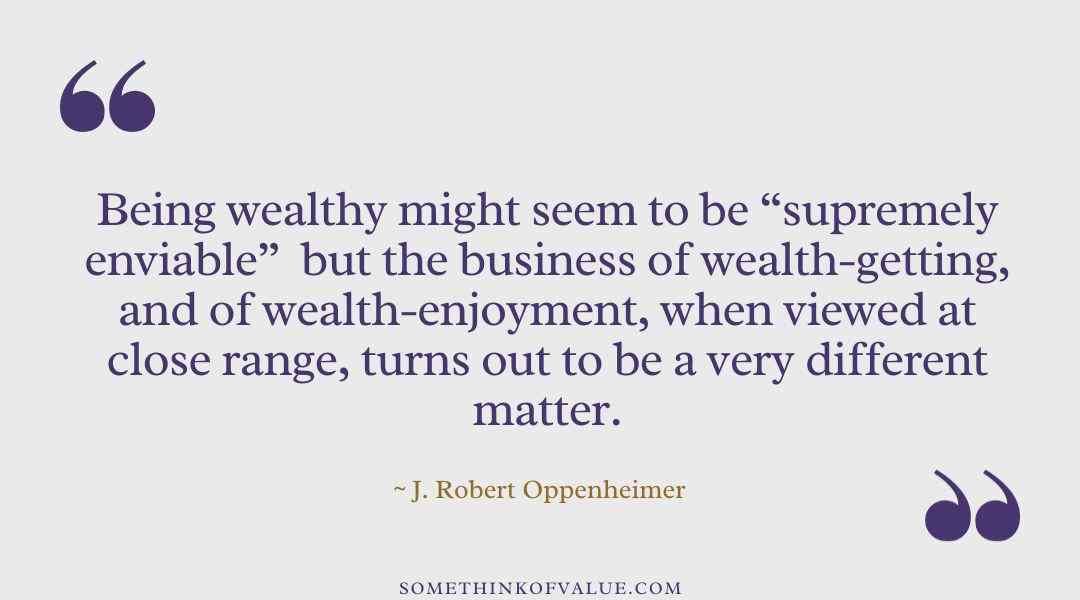
1. “Being wealthy might seem to be “”supremely enviable,”” he wrote, but “”the business of wealth-getting, and of wealth-enjoyment, when viewed at close range, turns out to be a very different matter.”
2. “I would urge the principle of self-limitation in regard to wealth,”” and he made this “”plea to the wealthy””: The first step to take, it they would set themselves right, is to live in the midst of superfluous wealth as if they were not the possessors of it; that is, to take for their own use only what they require for the essentials of a civilized life, and to regard the rest as a deposit for the general good, of which they themselves are not to be the beneficiaries.”
J. Robert Oppenheimer Quotes About Man

1. “No man should escape our universities without knowing how little he knows.”
2. “Any man whose errors take ten years to correct is quite a man.”
3. “When we deny the EVIL within ourselves, we dehumanize ourselves, and we deprive ourselves not only of our own destiny but of any possibility of dealing with the EVIL of others.”
4. “The foolish man seeks happiness in the distance, the wise grows it under his feet.”
5. “The experience of seeing how our thought and our words and our ideas have been confined by the limitation of our experience is one which is salutary and is in a certain sense good for a man’s morals as well as good for his pleasure. It seems to us [scientists] that this is an opening up of the human spirit , avoiding its provincialism and narrowness.”
6. “When you see something technically sweet you go ahead and do it, and you argue about what to do about it, only after you have achieved success.”
7. “There are no secrets about the world of nature. There are secrets about the thoughts and intentions of men.”
Personal J. Robert Oppenheimer Quotes
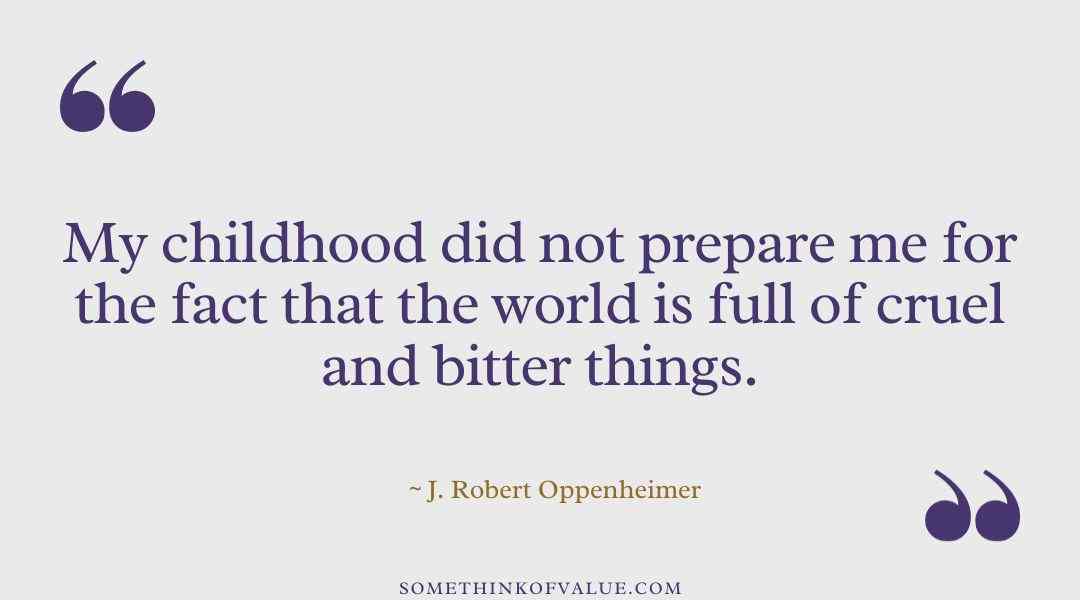
1. “The optimist thinks this is the best of all possible worlds. The pessimist fears it is true.”
2. “It is perfectly obvious that the whole world is going to hell. The only possible chance that it might not is that we do not attempt to prevent it from doing so.”
3. “To the confusion of our enemies.”
4. “Knowledge cannot be pursued without morality.”
5. “There are children playing in the street who could solve some of my top problems in physics, because they have modes of sensory perception that I lost long ago.”
6. “The peoples of this world must unite or they will perish.”
7. “To try to become happy is to try to build a machine with no other specifications than it shall run noiselessly.”
8. “Nah man…I’m pretty fucking far from ok.”
9. “Scientists are not delinquents. Our work has changed the conditions in which men live, but the use made of these changes is the problem of governments, not of scientists.”
10. “I had had a continuing smoldering fury about the treatment of Jews in Germany.
11. “My childhood did not prepare me for the fact that the world is full of cruel and bitter things.”
J. Robert Oppenheimer Quotes About Science
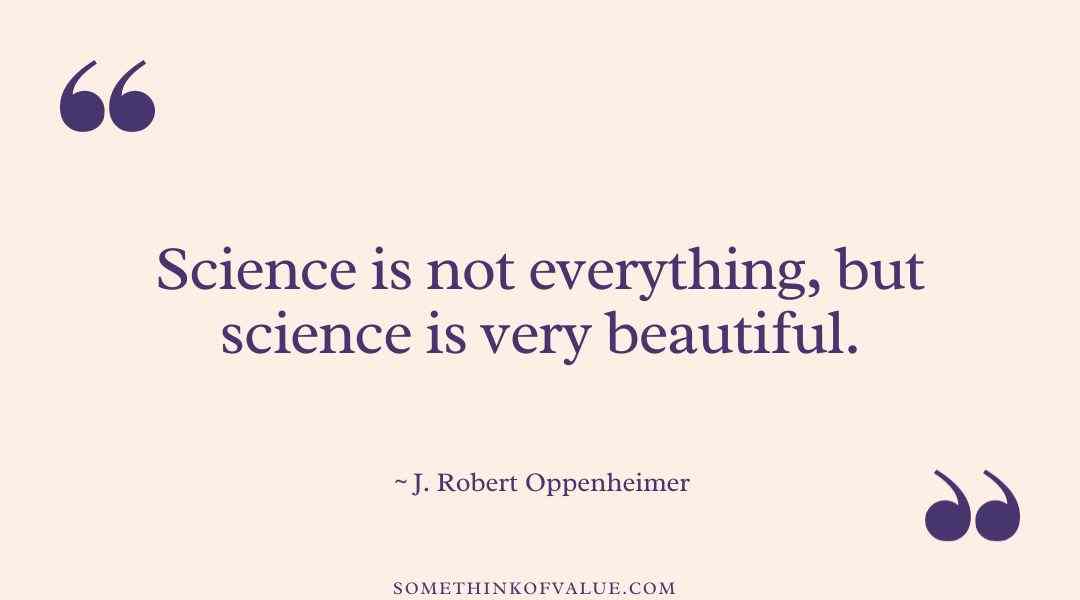
1. “Science is not everything, but science is very beautiful.”
2. “It is a profound and necessary truth that the deep things in science are not found because they are useful; they are found because it was possible to find them.”
3. “There is no place for dogma in science. The scientist is free, and must be free to ask any question, to doubt any assertion, to seek for any evidence, to correct any errors.”
4. “There must be no barriers to freedom of inquiry … There is no place for dogma in science. The scientist is free, and must be free to ask any question, to doubt any assertion, to seek for any evidence, to correct any errors. Our political life is also predicated on openness. We know that the only way to avoid error is to detect it and that the only way to detect it is to be free to inquire. And we know that as long as men are free to ask what they must, free to say what they think, free to think what they will, freedom can never be lost, and science can never regress.”
5. “The problem of doing justice to the implicit, the imponderable, and the unknown is of course not unique in politics. It is always with us in science, it is with us in the most trivial of personal affairs, and it is one of the great problems of writing and of all forms of art. The means by which it is solved is sometimes called style. It is style which complements affirmation with limitation and with humility; it is style which makes it possible to act effectively, but not absolutely; it is style which, in the domain of foreign policy, enables us to find a harmony between the pursuit of ends essential to us, and the regard for the views, the sensibilities, the aspirations of those to whom the problem may appear in another light; it is style which is the deference that action pays to uncertainty; it is above all style through which power defers to reason.”
6. “In the material sciences these are and have been, and are most surely likely to continue to be heroic days.”
7. “It is a profound and necessary truth that the deep things in science are not found because they are useful; they were found because it was possible to find them.”
After the war, Oppenheimer continued his scientific and academic career and became the director of the Institute for Advanced Study in Princeton, New Jersey, and remained involved in various scientific and policy-related activities.
He served as the chairman of the General Advisory Committee of the newly formed United States Atomic Energy Commission (AEC), where he advocated for international control of nuclear weapons.
J. Robert Oppenheimer is remembered both for his significant contributions to theoretical physics and for his complex role in the development of nuclear weapons during a critical period in history. His legacy is marked by the profound ethical and moral questions associated with the use of atomic energy for destructive purposes.
If these Oppenheimer quotes left an impact on you, share them with your friends & family on social media!
Also Read:

